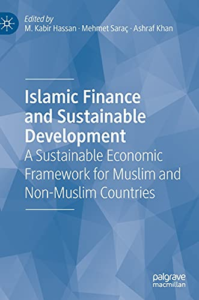Challenges For Islamic Banking
The Islamic finance industry continues to attract new players and evolve its products and services to become a more active participant in the world’s march towards achieving climate goals. The key Islamic finance jurisdictions are focused on sustainability and ESG policies and initiatives. Looking back at 2020, Malaysia, Indonesia, and Saudi Arabia were notable actors as they continued leveraging sukuks to finance social and green projects.
Mustafa Adil,Head of Islamic Finance, RefinitivRamadan Offer
However there are certain Challenges For Islamic Banking. Here are few of them.
1. Lack of standardization and harmonization: The lack of standardization and harmonization of Islamic financial products and services across different jurisdictions and regions can pose a challenge. This can create confusion and uncertainty for customers and investors, and may limit the growth of Islamic finance.(1)
2. Shari’ah compliance: Ensuring Shari’ah compliance is a key challenge for Islamic banks. The interpretation of Islamic law can vary among scholars, leading to differences in the application of Shari’ah principles.(2)
3. Risk management: Islamic banks face unique risks, such as those associated with profit-sharing and equity-based financing. Managing these risks requires specialized expertise and innovative risk management tools.(3)
4. Human capital development: The shortage of qualified professionals with expertise in Islamic finance is a challenge for the industry. Developing human capital is essential for the growth and sustainability of Islamic banking.(4)
5. Market perception: Islamic finance is often perceived as a niche market, which can limit its appeal to a broader customer base. Raising awareness and improving the perception of Islamic finance is important for its growth.(5)
6. Regulatory environment: The lack of a supportive regulatory environment can hinder the growth of Islamic finance. Regulatory frameworks need to be adapted to the unique characteristics of Islamic finance to promote its development.(6)
How to overcome the Challenges For Islamic Banking
Here are some ways by which challenges to islamic banking can be overcomed according to experts of Islamic finance.
- Develop Innovative financial product
1.By developing new and innovative financial products that are based on Shari’ah-compliant principles, Islamic banks can expand their product offerings and become more competitive with conventional banks. For example, Islamic banks could offer microfinance products that are based on the principles of zakat (charitable giving) or develop takaful (Islamic insurance) products that are based on the principle of cooperation and assistance.
2. Effective marketing
Islamic banks can use various channels, such as social media, educational campaigns, and partnerships with community organizations, to educate potential customers about the benefits of Islamic finance and dispel any misconceptions they may have. These efforts could include hosting informational sessions, producing educational materials, or offering training programs for interested individuals.
3. Work for recognition of Islamic finance in national regulatory framework
lobbying for the recognition of Islamic finance in national regulatory frameworks, or advocating for the development of international standards and guidelines for the Islamic finance industry can help the Islamic banking develop in leap and bounds
Book recommendation on Challenges For Islamic Banking:
“Islamic Finance: Growth, Stability and Inclusion” by Zamir Iqbal and Abbas Mirakhor.(amazon link)
“Islamic Finance: Growth, Stability and Inclusion” is a book that explores the growth, stability, and inclusivity of Islamic finance. The book is authored by Zamir Iqbal and Abbas Mirakhor, who are both experts in Islamic finance and have extensive experience in the field.
The book covers a wide range of topics related to Islamic finance, including the basic principles of Islamic finance, the current state of the industry, and the challenges and opportunities facing the sector. It also examines the role of Islamic finance in promoting economic growth and development, and its potential to contribute to financial stability and inclusion.
One of the key themes of the book is the need for a supportive regulatory environment to promote the growth and development of Islamic finance. The authors argue that regulatory frameworks need to be adapted to the unique characteristics of Islamic finance to ensure that the industry can operate effectively and efficiently.
The book also highlights the importance of financial inclusion in Islamic finance. The authors argue that Islamic finance has the potential to promote financial inclusion by providing access to financial services for underserved and marginalized communities.
“Islamic Finance: Growth, Stability and Inclusion” provides a comprehensive overview of the Islamic finance industry and its potential to contribute to economic growth, financial stability, and inclusion. It is a valuable resource for anyone interested in learning more about this important and rapidly growing sector.
Read some more books on Islamic finance
Reference:
- (1)Reference: “Islamic Finance: Law, Economics, and Practice” by Mahmoud A. El-Gamal
- (2)Reference: “Islamic Banking and Finance: Fundamentals and Contemporary Issues” by Saiful Azhar Rosly and Effendy Bin Othman
- (3)Reference: “Islamic Finance: Principles, Performance and Prospects” by Tariqullah Khan
- (4)Reference: “Islamic Finance in a Nutshell: A Guide for Non-Specialists” by Brian Kettell
- 5. Reference: “Islamic Finance: The Regulatory Challenge” by Simon Archer and Rifaat Ahmed Abdel Karim
- 6. Reference: “Islamic Finance: Growth, Stability and Inclusion” by Zamir Iqbal and Abbas Mirakhor.
Discover more from Islam Hashtag
Subscribe to get the latest posts sent to your email.







